Barbara Watson Andaya is Professor and Chair of Asian Studies at the University of Hawai‘i and former Director of the University’s Center for Southeast Asian Studies. In 2005-06 she was President of the American Association of Asian Studies. Educated at the University of Sydney (BA, Dip.Ed.), she received an East-West Center grant in 1966 and obtained her MA in history at the University of Hawai‘i and subsequently her Ph.D. at Cornell University with a specialization in Southeast Asian history. In 2000 she was awarded a John Simon Guggenheim fellowship, and in 2010 the University of Hawai‘i Regents Medal for Excellence in Research. She has lived and taught in Malaysia, Australia, New Zealand, Indonesia, Singapore, the Netherlands, and the United States. Her specific area of expertise is the western Malay-Indonesia archipelago, on which she has published widely, but she maintains an active teaching and research interest across all Southeast Asia. Her publications include Perak, The Abode of Grace: A Study of an Eighteenth Century Malay State (1979), co-translator of Raja Ali Haji’s Tuhfat al-Nafis (The Precious Gift) (1982); To Live as Brothers: Southeast Sumatra in the Seventeenth and Eighteenth Centuries (1993); The Flaming Womb: Repositioning Women in Early Modern Southeast Asia (2006). With Leonard Y. Andaya she has co-authored A History of Malaysia (1982; revised edition, 2000, third edition, forthcoming 2016) and A History of Early Modern Southeast Asia (Cambridge University Press, 2015). Her present project is a history of religious interaction in Southeast Asia, 1511-1900.
Bios

-
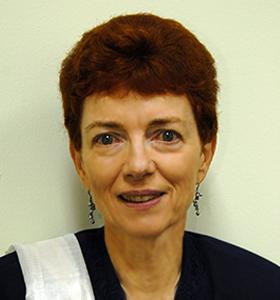 Barbara WastonAndaya
Barbara WastonAndaya -
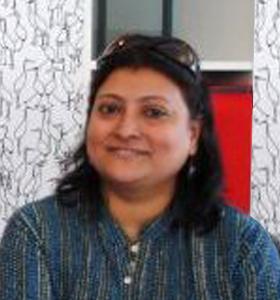 AnusuaBasu Ray Chaudhury
AnusuaBasu Ray ChaudhuryDr. Anasua Basu Ray Chaudhury is a Fellow at the Observer Research Foundation, Kolkata and the coordinator of the project entitled ‘Proximity to Connectivity: India and and its Eastern and Southeastern Neighbours’. She holds a PhD in International Relations and specializes in South Asian affairs including energy politics, forced migration and women in conflict situations in South Asia. She was a Research and Programme Associate at Calcutta Research Group, and a Visiting Fellow at Science Po, Paris in 2012. She received the Kodikara Award from the Regional Centre for Strategic Studies (RCSS), Colombo, Sri Lanka in 1998-99. She was an ICSSR Post-Doctoral Fellow (2004-06) at the Centre for the Studies of Developing Societies (CSDS), Delhi. Her recent publications include State of being Stateless: An Account on South Asia (Orient Black Swan, New Delhi, 2015, co-editor); India-Bangladesh Connectivity: Possibilities and Challenges (ORF, New Delhi, 2015,co-author); Women in Indian Borderlands (Sage, New Delhi, July 2011, co-editor); Sanghat O Sashan: Purbottar Bharater (Conflict and Governance: A Northeast Diary), Gangchil, Kolkata, 2013; Negotiating the Emerging Energy Crisis in South Asia, Centre for South and Southeast Asian Studies, University of Calcutta, 2009 (Occasional Paper); SAARC at Crossroads: The Fate of Regional Cooperation in South Asia (Samskriti, New Delhi, 2006), The Energy Crisis and Sub-regional Cooperation in South Asia (Policy Studies 13 published by the RCSS in 2000).
-
 SolomonBenjamin
SolomonBenjaminSolomon Benjamin is with the faculty of the Humanities and Social Science Department of the Indian Institute of Technology Madras in India. Benjamin’s contribution to the academic literature has been the concept ‘Occupancy Urbanism’ where territoriality operates beyond the logics of Master Plans. He has a PhD from Massachusetts Institute of Technology's Department of Urban Studies and Planning, and SM in Architectural Studies from MIT’s Department of Architecture. Benjamin’s current work focuses on the relationship between Indian and Chinese cities shaped by small firm economies, and small town urbanization in coastal South India. Benjamin is part of several international research projects, and also critical art groups: the RAQs media collective in their Delhi based program: ‘City as Studio’, and most recently, invited to be part of their ’15 Invitations’ by the Hong Kong based Asian Art Archive. Benjamin has published in journals (IJURR, SARAI reader, GeoForum, Agone, and Review Trie Monde) with translations into French, Spanish, German, and Catalan. He was faculty in the School of Social Sciences at Bangalore’s National Institute of Advanced Studies, in the University of Toronto’s Department of Political Science, and a visiting faculty at the National Law School of India University, Bangalore.
-
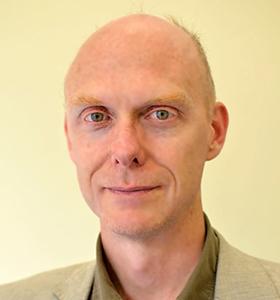 RobertBickers
RobertBickersProfessor Bickers is Professor at The University of Bristol. He specialises in modern Chinese history, and the history of colonialism, and in particular of the British empire and its relations with China and the history of Shanghai (1843-1950s). Work in this field includes the books Britain in China (1999), Empire Made Me: An Englishman adrift in Shanghai (2003), The Scramble for China: Foreign Devils in the Qing Empire, 1832-1914 (2011), and Out of China: The decline and fall of the foreign presence, 1918-1997 (forthcoming, 2017). His interest in the world of British colonialism and migration more broadly underpins a volume in the Oxford History of the British Empire companion series that he edited on British communities across the worlds of formal and informal empire. He is also interested in cemeteries and photographs and their post-colonial lives, clipper ships, lighthouses and meteorology in China. His most recent books are Getting Stuck in for Shanghai: Putting the Kibosh on the Kaiser from the Bund (Penguin, 2014), and volumes co-edited with Jonathan J. Howlett: Britain and China, 1840-1970: Empire, Finance, and War (2015), and with Isabella Jackson: Treaty Ports in Modern China: Law, Land, and Power (2016).
Professor Bickers is the Co-Director of the British Inter-university China Centre, have been a Co-Director of the AHRC-funded REACT Knowledge Exchange Hub, and led an ESRC-funded project, 'Colonialism in comparative perspective: Tianjin under nine flags' (2008-11). I direct the 'Hong Kong History project', and the 'Historical Photographs of China' digitization project. -
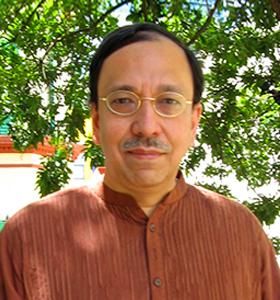 SugataBose
SugataBoseProfessor Bose is Professor of History at Harvard University. Bose's field of specialization is modern South Asian and Indian Ocean history. He obtained his Ph.D. from the University of Cambridge. His books include His Majesty's Opponent: Subhas Chandra Bose and India's Struggle against Empire (Cambridge: Harvard University Press, 2011) and A Hundred Horizons: the Indian Ocean in the Age of Global Empire (Cambridge, MA: Harvard University Press, 2006.) In A Hundred Horizons, Bose crosses area studies and disciplinary frontiers as he bridges the domains of political economy and culture. He was a recipient of the Guggenheim Fellowship in 1997. Bose is currently writing a book titled Asia after Europe: Decline and Rise of a Continent (under contract with Harvard University Press) and working as General Editor on The Cambridge History of the Indian Ocean.
-
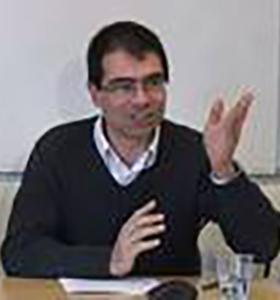 PascalBourdeaux
PascalBourdeauxAFFILIATION
Pascal Bourdeaux is Associate Professor at École Pratique des Hautes Études. He was the head of the École française d’Extrême-Orient in Hô Chi Minh City (2012-2015) and memeber of the Research Center « Groupe Sociétés Religions Laïcités » (UMR 8582 EPHE-CNRS). Professor Bourdeaux's research interests are: Religious Modernity and New Religious Movements in Vietnam (Buddhism, New Religious Movements, Popular Religions), Secularization in Mainland Southeast Asia (State/Church Relations), Comparative and connected Histories of Protestantism in Southeast Asia, Transdisciplinary approach of the Mekong Delta and its riverine Civilization and Popular culture and Literature in Southern Vietnam. -
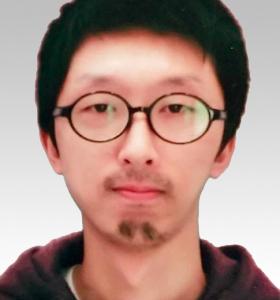 YinCao
YinCaoDr. Cao Yin is right now a Post-Doctoral fellow at Center for Global Asia, New York University Shanghai. He holds a PhD degree from the history department of National University of Singapore. His research focuses on the Sino-Indian connection in the late nineteenth and early twentieth centuries. Additionally, he writes extensively on global history, modern Chinese history, and the British Empire.
-
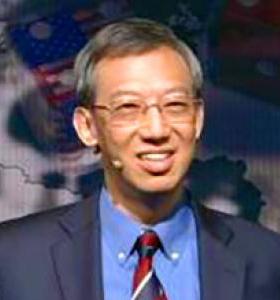 JianChen
JianChenChen Jian is Distinguished Global Network Professor of History at NYU Shanghai and NYUNY. He is also Hu Shih Professor of History and China-US Relations, the inaugural holder of the Michael J. Zak Chair of History for US-China Relations (2005-2015), and visiting professor at the Johnson Graduate School of Business Management, Cornell University; Global Fellow at the Woodrow Wilson Center; and Zijiang Distinguished Visiting Professor at East China Normal University. Previously he was the Philippe Roman Chair in History and International Affairs at the London School of Economics; visiting professor at Sciences Po, Paris; and distinguished visiting research professor at the University of Hong Kong. He holds a PhD from Southern Illinois University and an MA from Fudan University and East China Normal University in Shanghai.
Chen is a leading scholar in modern Chinese history, the history of Chinese-American relations, and Cold War international history. Among his many publications are China's Road to the Korean War (1994), The China Challenge in the 21st Century: Implications for U.S. Foreign Policy (1997), and Mao's China and the Cold War (2001). He is now completing a major biography of Zhou Enlai (in both English and Chinese).
Chen was the recipient of the Jeffrey Sean Lehman Grant for Scholarly Exchange with China, Cornell University, 2007 and 2011; a senior scholar at the Woodrow Wilson Center; a chief faculty speaker for the National Endowment for the Humanities’ Summer Institute, 'New Sources and Findings on Cold War International History'; a Jennings Randolph Senior Fellow for International Peace (United States Institute of Peace, 1996-1997) and a Norwegian Nobel Institute fellow (Oslo, Norway, 1993). In addition, in 2005 he shared the honors for an Emmy Award for Outstanding Achievement in News and Documentary Research for Declassified: Nixon in China. -
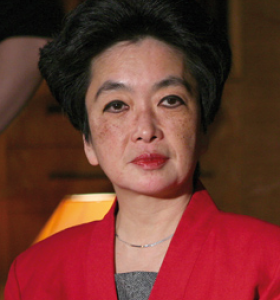 AnneCheng
AnneChengBorn in Paris to Chinese parents, Anne Cheng was educated in the French state school system, focusing on classics and European literature and philosophy, until she entered the Ecole Normale Supérieure. There she opted to devote herself exclusively to Chinese studies which she also pursued at Oxford, Cambridge, and Fudan University in Shanghai. She has ever since been involved in teaching and research on the intellectual history of China, and Confucianism in particular, initially at the CNRS (French National Center for Scientific Research), then at INALCO (National Institute for Oriental Languages and Civilizations), before her appointment to the Institut universitaire de France and her election to the Collège de France in 2008 where she holds the Chair of Chinese intellectual history.
She has written a French translation of the 'Analects of Confucius' (Entretiens de Confucius), a 'Study on Confucian Exegesis in the Early Imperial Era', and a 'History of Chinese Thought'.
-
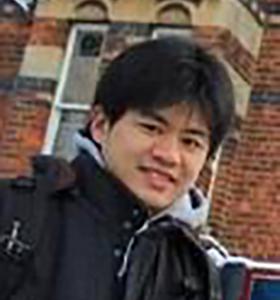 Ka-KinCheuk
Ka-KinCheukKa-Kin Cheuk is a Post-Doctoral Researcher at the Leiden University Institute for Area Studies (LIAS), where he is part of an interdisciplinary research project, ‘Immigration and the Transformation of Chinese Society’ (2015–2017). He completed his DPhil in Social and Cultural Anthropology at St. Antony’s College and as a doctoral student at the University of Oxford, was affiliated with the ESRC Centre on Migration, Policy and Society (COMPAS).
-
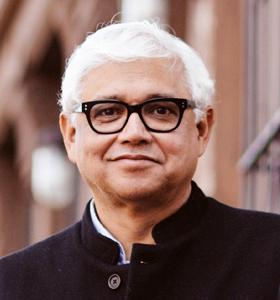 AmitavGhosh
AmitavGhoshAmitav Ghosh was born in Calcutta and grew up in India, Bangladesh and Sri Lanka. He studied in Delhi, Oxford and Alexandria and is the author of The Circle of Reason, The Shadow Lines, In An Antique Land, Dancing in Cambodia, The Calcutta Chromosome, The Glass Palace, The Hungry Tide, and the first two volumes of The Ibis Trilogy; Sea of Poppies, and River of Smoke.
The Circle of Reason was awarded France’s Prix Médicis in 1990, and The Shadow Lines won two prestigious Indian prizes the same year, the Sahitya Akademi Award and the Ananda Puraskar. The Calcutta Chromosome won the Arthur C. Clarke award for 1997 and The Glass Palace won the International e-Book Award at the Frankfurt book fair in 2001. In January 2005 The Hungry Tide was awarded the Crossword Book Prize, a major Indian award. His novel, Sea of Poppies (2008) was shortlisted for the Man Booker Prize, 2008 and was awarded the Crossword Book Prize and the India Plaza Golden Quill Award. -
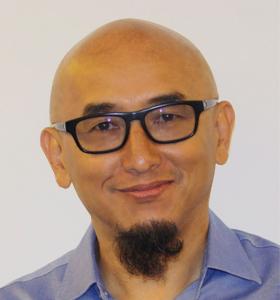 AshokGurung
AshokGurungAshok Gurung (M.I.A., Columbia University) is core Faculty Member and Director of the India China Institute at The New School. He has taught at Columbia University's School of International and Public Affairs and he served as Program Officer for the Ford Foundation International Fellowships Program based in New York City. A native of Nepal, he has worked with a number of non-governmental and multilateral organizations involved in micro-finance, higher education, capacity building, participatory community-based development, environment, and child-survival programs in various developing countries. He helped found and manage a U.S.-based cross-cultural study program in Nepal for international undergraduates.
-
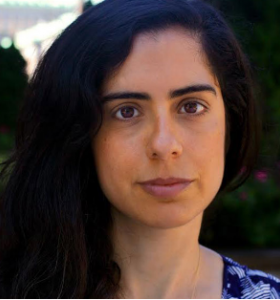 GalGvili
GalGviliGal Gvili is a Lecturer in Discipline at Columbia University. She received her B.A and M.A from Hebrew University in Jerusalem and her PhD in Modern Chinese Literature and Comparative Literature and Society from Columbia University in 2015. Gvili researches and teaches in early modern, modern, and contemporary Chinese literature, Chinese cinema of all periods, and literary and cultural theory.Her current research, entitled "The Invention of Sympathy: Realism, Religion and Resonance in Modern Chinese Literature" explores how literary realism became the vehicle for achieving national salvation from Western imperialism in Republican China (1911–1949). Her publications include “Pan-Asian Poetics: Tagore and the Interpersonal in May 4th New Poetry” (forthcoming) Journal of Asian Studies. “Ling yi zhong xieshizhuyi: Mao Dun yu youtai zongjiao, ziranzhuyi ji shengming wenti”(Alternative Realism: Judaism, Naturalism and the Question of Life in the Writings of Mao Dun). Han Yuyan Wenxue Yanjiu 2012, 3(1): 19–28; “Lu Xun wai wen cang shu ti yao: hei nü qiu shen ji” (Lu Xun Foreign Books Catalogue: The Adventures of the Black Girl in Her Search for God) Lu xun yan jiu yue kan 2012, 3: 8–10.
-
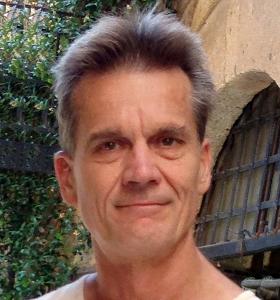 PeterHershock
PeterHershockPeter Hershock is Director of the Asian Studies Development Program (ASDP) and Education Specialist at the East-West Center in Honolulu, Hawai'i. In his work with ASDP, he designs and directs higher education faculty and institutional development programs that seek to mainstream the study of Asian cultures and societies in the undergraduate classroom. In his research capacity in the Center's Education Program, he has collaborated in designing and hosting international education leadership programs and research seminars that critically examine the relationship among higher education, globalization, equity and diversity. Trained in Asian and comparative philosophy, his main research work has focused on making use of Buddhist conceptual resources to reflect on and address contemporary issues of global concern.
-
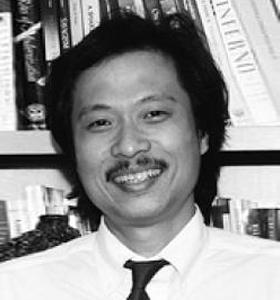 EngsengHo
EngsengHoEngseng Ho is Professor of cultural anthropology and history at Duke University and Muhammad Alagil Distinguished Visiting Professor at National University of Singapore. He was previously Professor of Anthropology at Harvard University and Senior Scholar at the Harvard Academy.
After graduating from Stanford with undergraduate degrees in economics and anthropology, Ho spent a few years as an international economist in Singapore before pursuing a masters and PhD at the University of Chicago. His dissertation on a society of Yemeni people that had a 500-year history of migration broke the mold of a traditional anthropology program that focuses on the study of contemporary society in one geographic locality. He spent two years in Yemen conducting research that revealed a rich history of a people who traveled throughout East Africa, the Arab world, India and Southeast Asia, intermarrying and contributing to the establishment of new Muslim religious, political and legal institutions. The dissertation grew into a book: The Graves of Tarim: Genealogy and Mobility across the Indian Ocean(University of California Press, 2006). He is currently interested in the international and transcultural dimensions of Islamic society across the Indian Ocean, and its relations to western empires. Ho also has conducted research in Saudi Arabia, India, and Southeast Asia. -
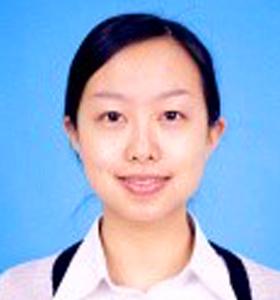 EffieHu
EffieHuEffie Hu is an Assistant Professor at Yunnan Academy of Social Sciences, China. She is currently a PhD student at School of International Studies, Jawaharlal Nehru University. She received her MA from the Institute of Southeast Asia Studies at Jinan University, Guangzhou, China, and her BA from Southwestern University of Finance and Economics, Chengdu, China.
-
 CelinaHung
CelinaHungTzu-hui Celina Hung is Assistant Professor of Literature at NYU Shanghai. Prior to joining NYU Shanghai, she was a visiting assistant professor and Andrew W. Mellon Postdoctoral Fellow in the Humanities at the University of California, Los Angeles, where she taught for the Department of Asian Languages and Cultures and the Department of Comparative Literature. Hung’s research interests include modern Chinese and Sinophone studies, Asian migration and diaspora, Anglophone literature, Southeast Asian studies, and the discourses of creolization versus multiculturalism. Her current book project studies the multilingual articulations of creolization by Peranakan writers and educators of various Chinese descents at the turn of the twentieth century and here onward, amid a changing nexus of political forces and cultural resources at home and abroad.
-
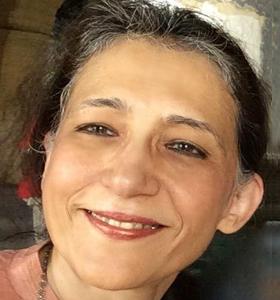 AyeshaJalal
AyeshaJalalAyesha Jalal joined Tufts University as a tenured full professor in the fall of 1999. Since 2003, she had held a joint appointment at the History Department and the Fletcher School of Law and Diplomacy and currently the holder of the Mary Richardson chair. After double majoring in history and political science from Wellesley College in 1978, Professor Jalal went to the United Kingdom where she received her doctorate in history from the University of Cambridge in 1983. She was a Fellow of Trinity College, Cambridge (1980-84), Leverhulme Fellow at the Centre of South Asian Studies, Cambridge (1984-87), Fellow of the Woodrow Wilson Center for International Scholars in Washington, DC (1985-86) and Academy Scholar at the Harvard Academy for International and Area Studies (1988-90). Between 1998-2003, she was a MacArthur Fellow. She has taught at the University of Wisconsin-Madison, Tufts University, Columbia University, and Harvard University.
-
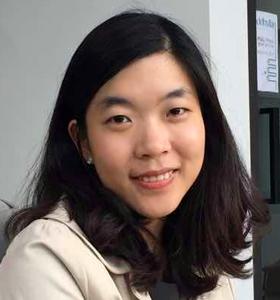 Hyeju JaniceJeong
Hyeju JaniceJeongHyeju Janice Jeong is a Ph.D Candidate at Duke University History Department. Her dissertation explores ways through which Chinese-Muslim communal leaders dispersed in between Shanghai, Taipei and Mecca directed flows of endowments and re-configured transmitted historiographical narratives to build trans-local networks between China/Taiwan and Arabia throughout the twentieth century, combining different strands of internationalisms and religious doctrines to their benefit. The study thus aims to bring together religion, politics, and socio-cultural constellations within a strand of overlapping diasporas, to shed a historical (but new) light on the critical mediators of Sino-Arabian/Islamic relations. Ms. Jeong is currently affiliated with the Peking University Arabic Department and the Center for Global Asia at NYU Shanghai for her field research.
-
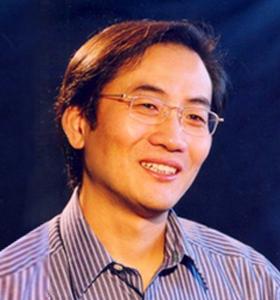 GuangyaoJin
GuangyaoJinJin Guangyao, born in Shanghai, is a Professor of department of History at Fudan University. He is also the director of ICSCC at Fudan.
Professor Jin’s research fields include the history of China's foreign relations, especially the diplomatic history of Republican China. Recently his research interests focus on the Cultural Revolution in Shanghai and the Sent-Down Youth movement. His academic works include A Biography of Wellington Koo, A History of the Republic of China, Volume 10 (co-author). He also edited Wellington Koo and Chinese diplomacy and The Diplomacy in the Period of the Northern Warlords (eds.), Educated youth Tribe: 10000 Shanghai People in Mount Huang (eds.), etc. Professor Jin also has many papers published in China Social Science, Historical Research, Modern history and other academic publications. -
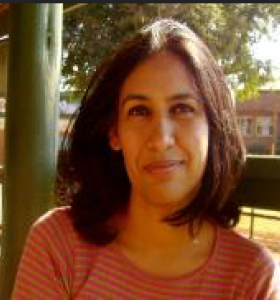 RavinderKaur
RavinderKaurRavinder Kaur is Associate Professor of Modern South Asian Studies in the Department of Cross Cultural and Regional Studies, University of Copenhagen. She is currently engaged in two long-term research projects. The first focuses on post-reform India’s transition into an attractive ‘emerging market’ in the global political economy, and second, explores the yet unfolding connections between Asia and Africa via a study of new business connections between India, China and Ethiopia. She is the Primary Investigator of two major projects ‘Nation in Motion: Globalization, Governance and Development in New India’ (2010-2015) and ‘Emerging Worlds: Explorations of New South-South Connections’ (2014-2018). Her previous research focused on the questions of forced migration, refugee resettlement, social class and caste and the making of modern citizenship during India’s Partition in 1947. She is the author of Since 1947: Partition Narratives among Punjabi Migrants of Delhi (Oxford, 2007), editor of Religion, Violence and Political Mobilization in South Asia (Sage, 2005), co-editor of ‘Governing Difference: Identity, Inequity and Inequality in India and China’, Special Issue, Third World Quarterly (2012), co-editor of ‘Aesthetics of Arrival: Spectacle, Capital, Novelty in post-reform India’, Journal Special Issue, Identities: Global Studies in Culture and Power (2016), and most recently, co-editor of ‘Social Mobility in Post-reform India’, Journal Special Issue, Contemporary South Asia (2016).
-
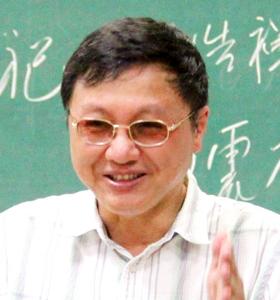 TiangangLi
TiangangLiLI Tiangang, Professor & Chair in Department of Religious Studies, Fudan University, Shanghai. He was born in Shanghai in 1957, and was trained as a historian in Fudan University to get his BA, MA and Ph. D. degrees. As a visiting scholar or an invited researcher, he had been in Harvard University, la Maison des sciences de L’homme, Paris, University of British Columbia, Vancouver, and a dozen other institutes. The major books he published, such as ‘Chinese Rites Controversy, Its History, Documents, and Significant’, ‘Cross Cultural Explanation, the meeting of Christian Theology and Confucian Biblical Study’, were in the fields of Sino-Western cultural exchanges, and Christian Church history in China. He worked on history and culture of Shanghai as well to publish the books of ‘Nanking Road, the Birth of Asian Modernity’, ‘Cultural Shanghai’. Recently he is working on the Confucian and popular believing in Yangtze Delta area.
-
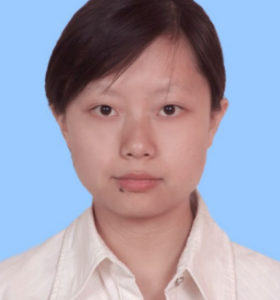 MinLi
MinLiLi Min is a Researcher at South Asia Institute of Yunnan Academy of Social Sciences. She graudated from Yunnan University, getting Bachelor of Arts degree in 2003 and Master of history degree in 2006. She is currently a Ph.D. candidate of Nanjing University. Her research interests are United States foreign policy to South Asia. Relevant articles in recent years: 'An Analysis of the Situation in Afghanistan: States Quo and Prospects', in Contemporary International Relations, Feb.2015; 'Anti-Americanism in Pakistan and Its Effects', in International Forum, Sep.2015; 'Afghan Hazaras’ Historical Circumstance and Current Situation: From the Fringe to the Center', in Indian Ocean Economic and Political Review, Oct.2014.
-
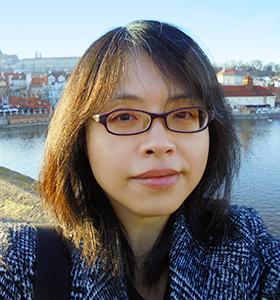 WenshuoLiao
WenshuoLiaoDr. Wen-shuo Liao is Researcher at the Academia Historica (or Guoshiguan), Taipei. She has written a few articles focusing on the changing visions and politics of art and culture in modern China and Taiwan, especially expositions and exhibition culture. She is currently working on a study of the role of wartime propaganda in nation-building in Republican China.
-
 YiLiu
YiLiuLiu Yi, Ph.D in Religious Studies from The Chinese University of Hong Kong. He is now Associate Professor in Department of History and Deputy Director of Center for Turkish Studies, Shanghai University. In the 2010-11 academic year, he was a post-doctoral fellow at Georgetown University’s Berkley Center for Religion, Peace and World Affairs. From 2013 to 2016, he acted as the Chinese Director of Confucius Institute at Boğazici University, Istanbul and studied the Turkish language. His research and teaching interests focus on history of religion and comparative religions (Christianity, Islam and Confucianism), religion and globalization, religion and violence, etc. He is author of Religion and Politics in a Global Context (Shanghai, 2011) and Globalization, Public Religions, and Secularism: A Comparative Study of Christianity and Islam (Shanghai, 2013), as well as academic articles both in Chinese and English. He also co-edited the Blue Book of Turkey and Religion & History series.
-
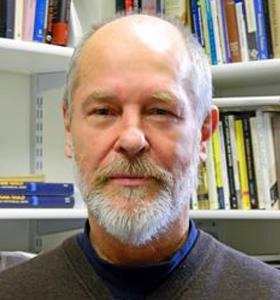 DavidLudden
DavidLuddenDavid Ludden is Professor and Chair in the Department of History at New York University. He worked in public health and translated Tamil Sangam poetry before shifting to study historical spaces of economic development in agrarian environments, first in Tamil Nadu, then in Bangladesh. He served on the faculty of the University of Pennsylvania and as President of the Association for Asian Studies before coming to NYU, where he has focused on Asia's spatial connectivity from ancient times to the present. He is writing a book on that topic and developing its academic infrastructure through the NYU Center for Global Asia and as Editor-in-Chief of the Oxford Online Research Encyclopedia of Asian History.
-
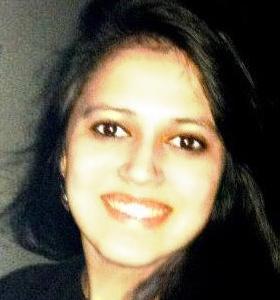 AdhiraMangalagiri
AdhiraMangalagiriAdhira Mangalagiri is a Ph.D. candidate in the Department of Comparative Literature at the University of Chicago. She is currently completing her dissertation, titled 'The World Within: Reading Colonial Literary Encounters between China and India,' as a Dissertation Fellow at the Franke Institute for the Humanities. 'The World Within' conducts theoretically-engaged readings of early twentieth-century Chinese and Hindi texts, uncovering the generative potential and aesthetic valence of colonial violence in crafting China-India literary dialogue. In 2015, she received the American Comparative Literature Association’s (ACLA) Horst Frenz Prize for her paper, 'Worlding Theory: Language as a New Possibility in Literary Theory' (forthcoming in The Yearbook of Comparative Literature). She currently serves as Graduate Student Representative on the ACLA advisory board.
-
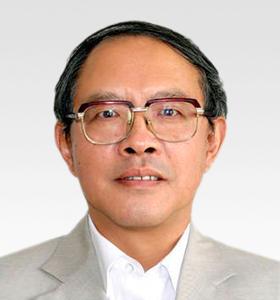 SiweiMao
SiweiMao -
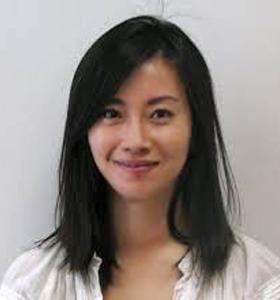 LeiPing
LeiPingLei Ping is an Assistant Professor of Chinese Studies at the New School University and Research Fellow at India China Institute. She received her Ph.D. in East Asian Studies at New York University. Her research focuses on contemporary Chinese cities and cultural politics, urban land policies in socialist and post-socialist economic development, as well as middle class and consumption of space in China and India. She has written on the everyday life and the socialist project of “remolding” the Shanghai national bourgeoisie in the Mao era. She is particularly interested in the question of the formation, discourse of struggle, and the socio-political role of the middle classes in Chinese and Indian creative economies, and the shifting tensions and relations between the middle classes and the state apparatus in the post-Mao and post-liberalization eras in China and India. Her recent fieldwork engages research topics such as spatial consumption, life-styles, and pastime of the middle classes in the emerging creative economies in Shanghai and New Delhi. Her forthcoming book is titled as 'Figures of Capital in Post-1949 Shanghai.'
-
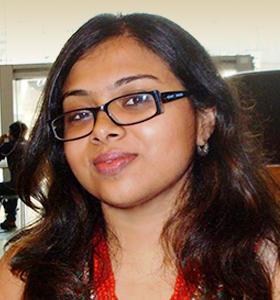 SwagataSaha
SwagataSahaSwagata Saha is a Junior Fellow with the ORF China Regional Studies Initiative at the Kolkata chapter. She is team member of the China Weekly Monitor and is working on the project 'Understanding Public Perception: India and China.' Her research areas include India's neighbourhood policy towards China, border problems and China's socio-political scenario.
Swagata has contributed articles to East Asia Forum, Asia Times and The Telegraph. She has written the book chapters 'Whither India and China in the 21st Century: Looking through the prism of India's North Eastern and China's South Western aspirations' in the edited JAIR-ICWA book (2014) and "Modi's Chinese Chances" in the edited volume India Calling: A World of Opportunities (2015).
She graduated from St. Xavier's college with BA (Honors) in Political Science. She pursued her MA in Political Science with specialisation in Research Methodology -
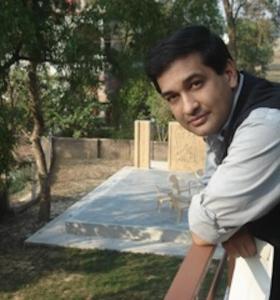 TansenSen
TansenSenTansen Sen is Professor of history at Baruch College, City University of New York, USA. Currently, he is a Visiting Professor and the Director of the Center for Global Asia at NYU Shanghai, China. He is the author of Buddhism, Diplomacy, and Trade: The Realignment of Sino-Indian Relations, 600-1400 (University of Hawai’i Press, 2003) and co-author (with Victor H. Mair) of Traditional China in Asian and World History (Association for Asian Studies, 2012). He has edited Buddhism Across Asia: Networks of Material, Cultural and Intellectual Exchange (Institute of Southeast Asian Studies, 2014). He is completing a monograph entitled India, China, and the World: Networks of Exchange and Interactions and working on a book about Zheng He’s maritime expeditions. He serves on the Governing Board of the Nalanda University, India.
-
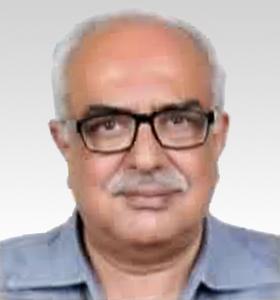 KamalSheel
KamalSheelKamal Sheel is former Professor of Chinese Studies at the Banaras Hindu University, Varanasi, India. He did his B.A. Honours in History from the Banaras Hindu University and earned his Ph.D. in the field of Modern Chinese History at the University of Wisconsin - Madison, USA. He has been Visiting Fellow at universities in Wisconsin- Madison, Yale, Copenhagen, Beijing, Singapore, and Taiwan. At Banaras Hindu University, he has been the founder coordinator of the Inter-Cultural Studies Centre and the Malaviya Centre for Ethics & Human Values as well as the Dean of the Faculty of Arts and Rector of the University.
His research interest primarily lies in the area of social and intellectual history of China and cultural interaction and encounters in Asia with focus on India and China. His major publication is Peasant Society and Marxist Intellectuals in China (Princeton 1989). He has also served as editor of a volume on India on the Silk Road (2009) and a two volumes Encyclopedia of India-China Cultural Contact (2014), and A.K. Narain Festschrift (forthcoming) as well as a forthcoming translation in English of Thakur Gadadhar Singh’s Thirteen Months in China with Anand Yang and and Ranjana Sheel. He lives in Varanasi and is presently translating two early 20th century Chinese travelogues to India. -
 MarkSwislocki
MarkSwislockiMark Swislocki is Associate Professor at NYU Abu Dhabi. He is a cultural historian specializing in Chinese history. His work examines such topics as the importance of food culture to urbanization, cultural factors shaping ideas about healthy eating, and the role of human-animal relations in the formation of human communities and cross-cultural or international relations.
Swislocki is the author of Culinary Nostalgia: Regional Food Culture and the Urban Experience in Shanghai (Stanford, 2009) and articles on the history of nutrition and human-animal relations.
He is currently conducting research for a book on the environmental history of Yunnan, titled The East is Green: The Political Jurisdiction of Nature in Southwest China.
Swislocki is the recipient of grants from the NYU Abu Dhabi Research Enhancement Fund (July-December 2011), the American Council of Learned Societies (Fellowship for American Research in the Humanities in China, 2011), Brown University Cogut Center For the Humanities (Faculty Fellowship, 2007-2008), Giles Whiting Foundation (Whiting Fellowship in the Humanities, 2000-2001), the Stanford Humanities Center (Geballe Dissertation Prize Fellowship, 1999-2000), and the Committee on Scholarly Communication with China (Dissertation Research Fellowship, administered by the ACLS, 1998-1999). -
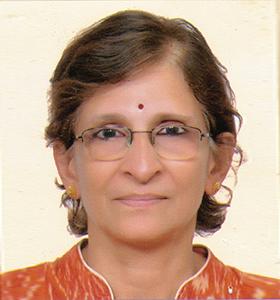 MadhaviThampi
MadhaviThampiMadhavi Thampi is an Honorary Fellow at the Institute of Chinese Studies, and Editor of its journal China Report. She was an Associate Professor at the Department of East Asian Studies in Delhi University, where she taught Chinese History. Her publications include the monograph Indians in China, 1800-1949 (2005), as well as Narratives of Asia from India, Japan and China (co-authored with Brij Tankha, 2005) and China and the Making of Bombay (co-authored with Shalini Saksena, 2009). She also edited the volume India and China in the Colonial World (2005, 2010). Currently, she is coordinating a project to catalogue materials on modern China in the National Archives of India as part of a project entitled Beyond Pan-Asianism: China-India Connections, 1911-1949.
Areas of interest: India-China relations in the colonial era; intra-Asian historical interactions. -
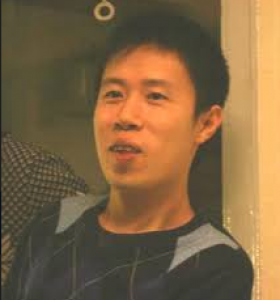 BrianTsui
BrianTsuiBrian Tsui is an Assistant Professor at the Department of Chinese Culture, The Hong Kong Polytechnic University. A historian of modern China, Brian is interested in the intersection between conservatism, revolutionary politics and the mobilization of cultures in the Republican period. His book manuscript 'China's Conservative Revolution: The Quest for a New Order, 1927-49' explores the Nationalist government's mass politics, Pan-Asianism and courtship of liberal intellectuals. He is working on a collaborative project, funded by the Chiang Ching-kuo Foundation for International Scholarly Exchange, titled "Beyond Pan-Asianism: China-India Connections, 1911-1949."
-
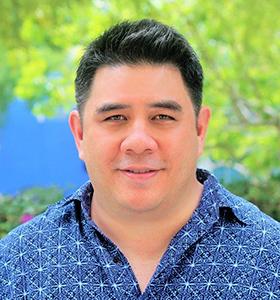 MaitriiV. Aung-Thwin
MaitriiV. Aung-ThwinMaitrii Aung-Thwin received his PhD from the University of Michigan where he studied Burmese and Southeast Asian history. He has lived and worked in Southeast Asia for fifteen years. Dr. Aung-Thwin is interested in questions concerning epistemology, knowledge production, and the history of community formation in Southeast Asia. Much of his research has been influenced by writings on colonialism/post-colonialism, ethno-history, socio-legal studies and public history. Dr. Aung-Thwin offers a range of undergraduate and graduate modules in Asian and World History. Some of his more regular undergraduate courses include "Asia in the Modern World", "Introduction to Southeast Asian History", "Introduction to World History", and "History of Myanmar". Recently offered graduate courses include 'Asian Studies in Asia', 'Approaches to Southeast Asian History', and 'Approaches to World History: Indian Ocean Encounters'. He is the academic convener of the newly-launched Comparative Asian Studies PhD Program and editor of the Journal of Southeast Asian Studies.
-
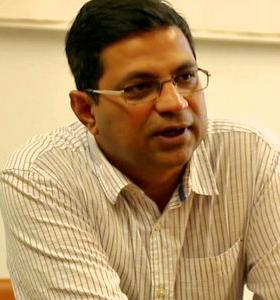 VamsiVakulabharanam
VamsiVakulabharanamProfessor Vakulabharanam is an Associate Professor of Economics at the University of Massachusetts Amherst. Previously, he taught at the University of Hyderabad (2008-14) and the City University of New York (2004-08). He was a grantee at the Institute for New Economic Thinking (INET, NY) between 2011 and 2014 on a project titled, ‘Economic Development and Inequality: What Can the Asian Experience Teach Us?’ He was a Fellow of the India China Institute of the New School (NY) between 2008 and 2010. He has worked on issues pertaining to agrarian change in the context of globalization in developing economies, agrarian cooperatives, and the relationship between economic development and inequality. His recent research focuses on inequality in the contemporary Asian economies, including India and China.
-
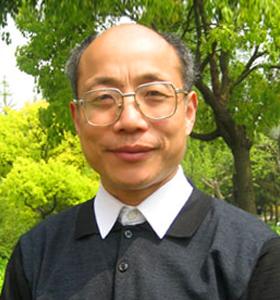 JianpingWang
JianpingWang -
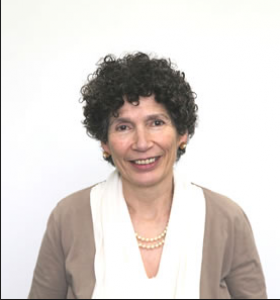 JoannaWeley-Cohen
JoannaWeley-CohenJoanna Waley-Cohen is the Provost for NYU Shanghai and Julius Silver Professor of History at New York University, where she has taught Chinese history since 1992. As Provost, she serves as NYU Shanghai’s chief academic officer, setting the university’s academic strategy and priorities, and overseeing academic appointments, research, and faculty affairs.
Her research interests include early modern Chinese history; China and the West; and Chinese imperial culture, especially in the Qianlong era.
She has received many honors, including archival and postdoctoral fellowships from the American Council of Learned Societies; Goddard and Presidential Fellowships from NYU; and an Olin
Fellowship in Military and Strategic History from Yale.
Waley-Cohen's books include The Culture of War in China: Empire and the Military under the Qing Dynasty (I.B. Tauris, 2006); The Sextants of Beijing: Global Currents in Chinese History (W.W. Norton, 1999); and Exile in Mid-Qing China: Banishment to Xinjiang, 1758-1820 (Yale University Press, 1991). Her current scholarly projects include a revised history of imperialism in China, a study of daily life in China c.1800, and a history of culinary culture in early modern China. -
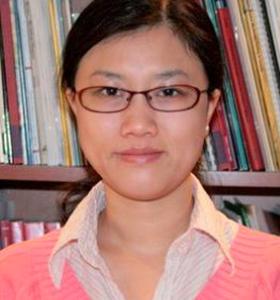 ShuangWen
ShuangWenWen Shuang's research project, entitled 'Imperial Mediations: Chinese-Arab Connections in the Late Nineteenth and Early Twentieth Centuries,' investigates the mediating role of western and Japanese powers in the intellectual, commercial, and interpersonal connections between two major non-western societies during the high tide of global imperialism. At NYU-Shanghai, she will work on turning the dissertation into a book manuscript. She earned her PhD in History from Georgetown University and MA in Middle East Studies from the American University in Cairo. She also received additional Arabic language training from the University of Damascus. Her publications include 'Muslim Activist Encounters in Meiji Japan,' Middle East Reports 270 special issue on 'China in the Middle East,' Middle East Research and Information Project, Washington DC, May 2014. Before switching career to the academy, she was a broadcast journalist and Chinese-English simultaneous interpreter in Hong Kong and Beijing.
-
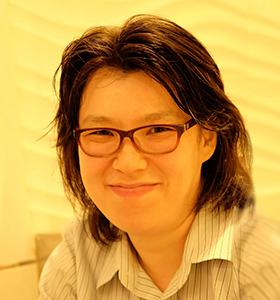 WasanaWongsurawat
WasanaWongsurawatDr. Wasana Wongsurawat is assistant professor in the Department of History, Faculty of Arts, Chulalongkorn University in Bangkok, Thailand. Her area of expertise is the history of modern China, the Chinese Diaspora, transnational and global history. She was the co-editor of Dynamics of the Cold War in Asia: Ideology, Identity and Culture (Palgrave Macmillan 2010). Among her latest publications is the article, 'Beyond Jews of the Orient: A New Interpretation of the Problematic Relationship between the Thai State and its Ethnic Chinese Community'.
-
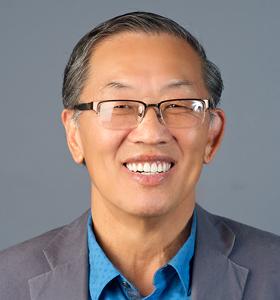 AnandYang
AnandYangProf. Yang is Professor at The University of Washington. He began his career specializing in South Asian History, specifically relating to colonial India. In recent years, his interests have increasingly become more comparative and global, comparisons and connections involving India, China, and other regions of Asia as well as in relation to the rest of the world. He had a joint appointment in the Henry M. Jackson School of International Studies, a unit of which he was the director between 2002 and 2010.
Prof. Yang’s early scholarship dealt with peasants and agrarian societies under British colonial rule. His publications include: The Limited Raj: Agrarian Relations in Colonial India (Berkeley, 1989), Bazaar India: Markets, Society, and the Colonial State in Bihar(Berkeley 1999). He is the editor and co-translator of a forthcoming book on Gadadhar Singh's Hindi account of Thirteen Months in China and author of a monograph entitled Empire of Convicts. Currently Prof. Yang edits a Perspectives on the Global Past series with the University of Hawaii Press and co-edits with Bonnie Smith a multi-volume New Oxford World History series published by Oxford University Press. -
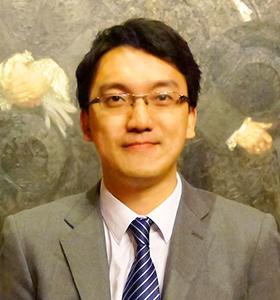 KeZhang
KeZhangZhang Ke is an Assistant Professor in the International Center for Studies of Chinese Civilization (ICSCC) and Department of History at Fudan University, he also serves as assistant director of ICSCC and Asia Research Center at Fudan University. He got his Ph.D. Degree at Department of History in Fudan University in 2009, over the years, he has been to the universities in Germany, USA and Hong Kong as a visiting scholar.
His research interests include modern Chinese intellectual history, modern Chinese foreign relations, and history of cultural exchange. He is the author of The Conceptual History of 'Humanism' in Modern China (2015, in Chinese) and the co-editor of The Production of Knowledge and the Politics of Culture in Modern China (2014, in Chinese).


